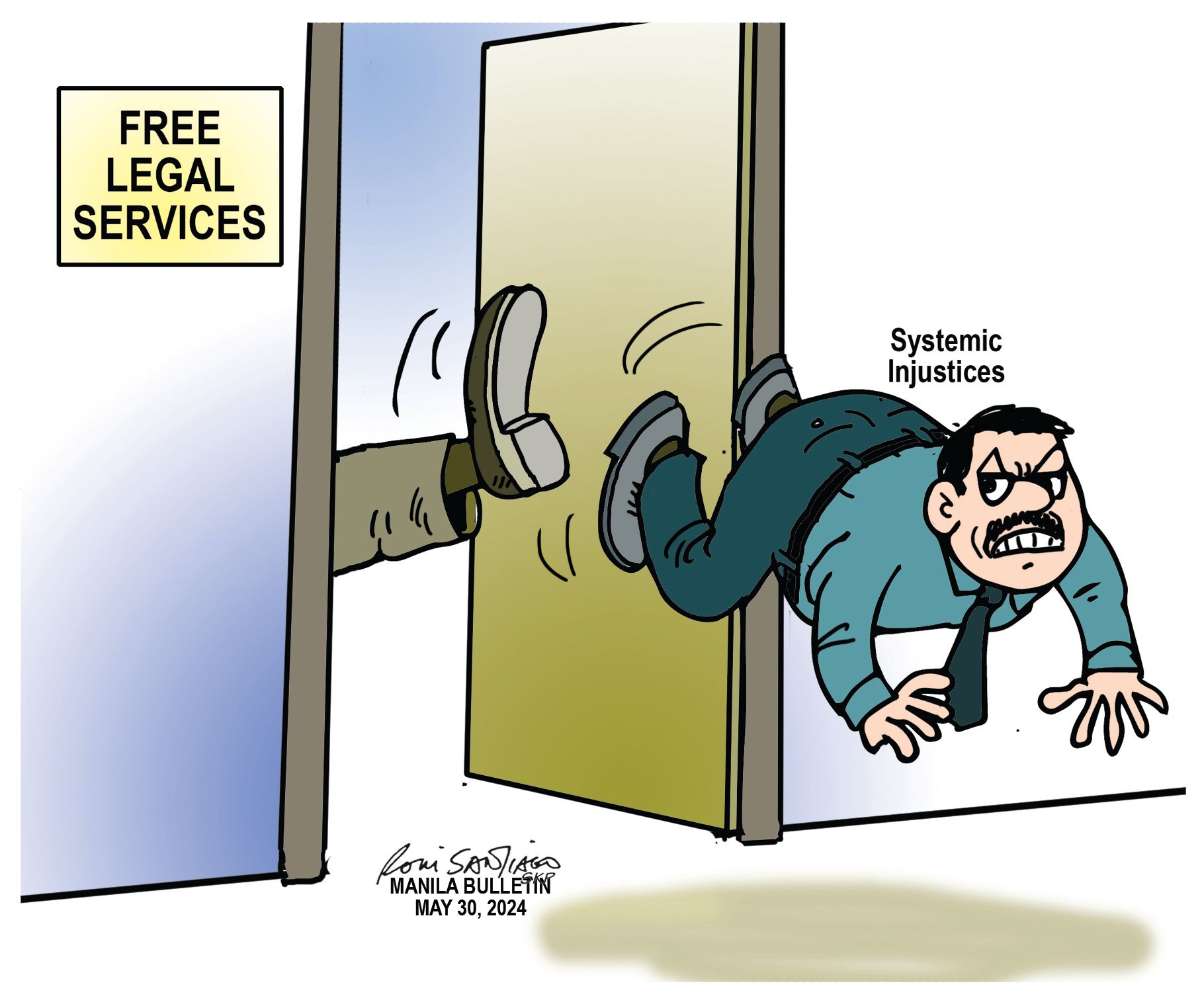Justice for the marginalized: Beyond free legal services, addressing systemic injustices

Lack of access to competent legal services is one of the reasons why Filipinos who belong to the marginalized and underprivileged classes are unable to obtain justice. In a forum entitled, “National Presentation – Stories from the Field: Overcoming Barriers to Access to Justice through Grassroots Action” held in Quezon City last week, Supreme Court Senior Associate Justice Marvic M.V.F. Leonen called on lawyers to go beyond “the surface of systemic injustices and issues.” He declared: “Legal aid involves working with communities to see what works, to solve existing legal problems, and their underlying economic, social, and political issues.”
This echoes the message delivered at a multisectoral summit held in Bacolod City in November 2022 by Chief Justice Alexander G. Gesmundo who called on lawyers to “look after the disadvantaged and the marginalized, in order to give them the chance to be equal with others, if not in life, at least in law.”
In its Strategic Plan for Judicial Innovations 2022-2027, the Supreme Court en banc has adopted a comprehensive program for improving the delivery of justice anchored by four principles – “timely and fair justice, transparent and accountable justice, equal inclusive justice, technologically adaptive management” – to achieve efficiency, innovation and access.
The Free Legal Assistance Group (FLAG), founded in 1974 by former Senators Jose W. Diokno and Lorenzo M. Tañada, retired Supreme Court Justice J. B. L. Reyes, and Atty. Joker Arroyo (who was elected senator in 2001), pioneered in the advocacy of securing enhanced access to justice for the poor. It has adopted a “non-traditional view on the law as an instrument of societal transformation called Development Legal Advocacy (DLA)” that responds to Senior Associate Justice Leonen’s call.
Through the 80s and 90s, similar initiatives were launched, leading to the formation of the Alternative Law Groups (ALG), presently housed in the Institute of Social Order in the Ateneo de Manila University’s Loyola campus. The groups in this coalition espouse specific sectoral issues – such as environment, women, agrarian reform, and children – assisting farmers, workers, urban poor and indigenous peoples.
The enactment of Republic Act 9999, also known as the Free Legal Assistance Act of 2010, has institutionalized the provision of free legal counsel to financially disadvantaged individuals, aiming to promote justice, prosperity, and independence while alleviating poverty. The scope of free assistance encompasses “preparation of legal instruments and contracts, appearance before administrative and quasi-judicial offices and bodies, and tribunals, handling cases in court, and other similar services defined by the Supreme Court.”
Currently, the Supreme Court is conducting regional information campaigns and dialogues for the issuance of rules on Unified Legal Aid Services (ULAS) that will enhance legal aid and encourage lawyers to render pro bono legal aid services to the poor and marginalized. Justice Alfredo Benjamin S. Caguioa heads the working group responsible for drafting these rules.
In the latest forum, fresh insights were gathered from highly instructive field experiences compiled by the ALG with the support of the International Development Research Center Canada that shed light on approaches that promote “grassroots communities’ participation and collective action to bridge access to justice gaps.”